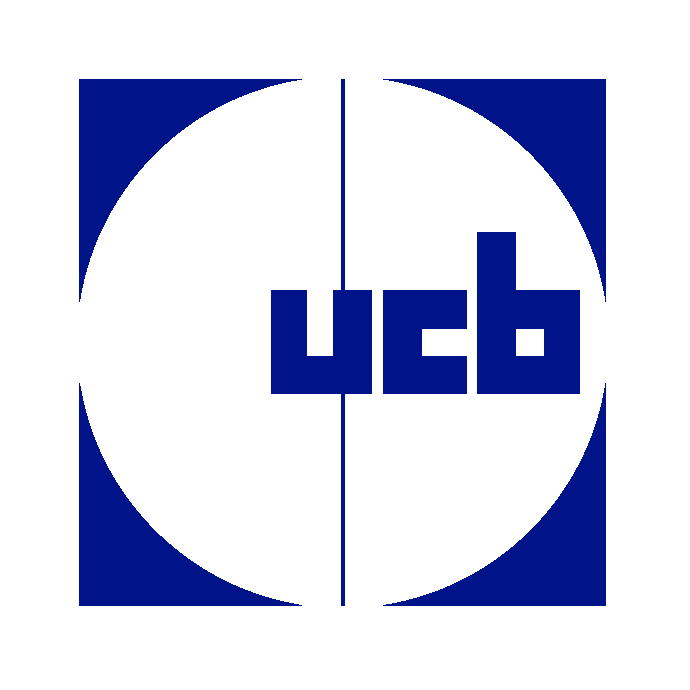Recent advances in neurological disorders

Considerable scientific progress across neurological diseases and disorders was reported at the recent 74th American Academy of Neurology (AAN) Annual Meeting. What may be important for healthcare professionals certainly makes encouraging news for patients waiting for effective solutions.
One research-driven company with a strong patient focus in neurology is UCB. “In everything we do, our guiding question is: What difference will this make for patients?” says Charl van Zyl, UCB’s executive vice president neurology & head of Europe & International Markets.
The next consideration typically is how do we help ensure those patients who benefit from treatment can access it. “Thirdly, we aim to create the best possible experience for patients to help them navigate through the complexity of their condition and all its consequences.”
Unmet needs in epilepsy
In epilepsy research, for instance, a lot of progress has been made over recent years that has helped improve the lives of many people living with the disease. With its 20-plus year legacy in creating an understanding of this complex disease and the heterogeneous population it affects, UCB went from an initial focus on arresting the symptoms to stopping seizures from happening altogether.
“While around 70% of epilepsy patients today are well-controlled and largely able to enjoy a ‘normal’ quality of life, either seizure-free or with a much lower frequency of seizures, we are working hard to understand the underlying causes of the symptoms of those remaining 30% who still don’t respond to available therapies,’ explains Charl. Both industry and academic researchers aim to deepen the scientific knowledge of the causes of issues such as drug resistance, as well as of rare forms of epilepsy where pathways are better understood, enabling more precise targeting and better individual outcomes.
To support the wide range of patients this complex disease impacts, who suffer from a diverse range of symptoms, it is critical that research into this area continues. “At UCB, we are trying to understand the whole spectrum of triggers causing epileptic seizures, from genetic factors, brain injury to stroke, cancer or other traumas,” Charl states.
“It’s really important that people have access to a wide spectrum of therapies, from treating emergencies to relieving symptoms like reducing seizure frequency, to addressing the root cause of the disease. We are committed to continuing our efforts to lead in this space.”
New developments in neuroinflammation and neurodegeneration
Beyond epilepsy, there is a range of further neurological disorders that are becoming increasingly well-understood. Charl believes we are witnessing the ‘decade of the brain’ with significant leaps in scientific understanding of disease pathways and genetic correlations.
“Genomics has unlocked entirely new insights to what exactly may cause certain neurological conditions. This advanced understanding makes me feel confident about our ability to provide further help and relief to people in need.”
Within these new possibilities, UCB currently places major focus on movement impediments through neuromuscular conditions, aiming to improve functionality and quality of life. Beyond epilepsy, there are two next areas of focus and rapid development: neuroinflammation and neurodegeneration.
Neuroinflammation looks at the neuromuscular junction with inflammation where different pathways get expressed in different diseases and may cause dysfunctionality. “This research has led us into rare diseases like myasthenia gravis, where patients typically suffer fatigue and a combination of symptoms impacting their quality of life, their ability to be active and function,” Charl explains.
“We are currently pursuing two different mechanisms to address that disease, a complement inhibitor and an anti-FcRn, that essentially aim to reduce inflammation and create normal functionality for MG patients.”
Another area of UCB’s attention is neurodegeneration; specifically Parkinson's and Alzheimer's diseases. Also, there is particular emphasis on exploring the potential of gene therapy to develop targeted treatments for these and further neurodegenerative conditions.
“Particularly in neurodegeneration, we must develop an ability to not just treat symptoms but modify the disease and slow, halt or even reverse its progression,” Charl is convinced. “We need to diagnose and intervene much earlier and monitor patients over much longer periods than today. A lot more research is needed including large-scale clinical trials, which comes at a certain amount of investment and risk.”
The value of external science and strategic collaboration
To stem these demands, complement internal pipelines with promising external science and create differentiated value for patients, a lot of pharmaceutical companies are currently looking for strategic collaborations and acquisitions.
For UCB, this opportunity came with the recent acquisition of Zogenix – an acquisition that promises to enhance both UCB’s epilepsy pipeline and its strategic priorities in rare diseases.
“With the acquisition of Zogenix, we added a new treatment to our portfolio to reduce seizures in two rare, specific forms of epilepsy: Dravet and Lennox-Gastaut Syndrome,” says Charl. “This acquisition fits perfectly our ‘patient value’ strategy of bringing highly differentiated solutions to patients. We’re really excited to utilise our capabilities to advance and optimise these new treatments and make them available to people in need, wherever they may live.”
Another example of incorporating external know-how, science and resources are UCB’s strategic collaborations with Roche and Novartis. “Because it takes decades of clinical research and investment to, hopefully, conquer widespread diseases like Alzheimer’s and Parkinson’s, we decided to collaborate in this area,” notes Charl.
“Each company adds terrific scientific expertise and, of course, we share resources and risk for this monumental piece of research and development.”
Over the next decade, UCB plans to continue its strong growth both in neurology and immunology. A steady stream of new launches is envisioned to offset the value of therapies losing exclusivity. Patients will benefit from novel therapies, line extensions, combination therapies as well as digital health offerings.
The future of epilepsy and neurology
“As we look to the next decade, the most exciting scientific approach I currently see is the advancement of gene therapy and its potential to address disease pathways,” Charl looks into the future with optimism.
The promise of gene therapy has the potential, and certainly the ambition to cure certain neurological diseases. A lot of science is currently underway to establish the value and safety of gene therapy. “Its scientific hypothesis paired with an ever more robust understanding of relevant disease pathways may essentially modify a defective genetic condition and, therefore, pave the way to potential cures.”
Another major trend, stimulated by the pandemic, is a rapid increase in digital health technologies. Most patients and their physicians are much more closely connected than prior to the emergence of coronavirus. Many have developed a preference to be treated in an online environment with convenient remote ‘visits’, often receiving more information, faster.
“The ability for patients to conveniently monitor in real-time, be better informed and access healthcare efficiently through a digital environment is a major improvement. It will lead to better prevention, stronger compliance with prescribed regimes, more disciplined participation in clinical trials, faster recruitment, less attrition, quicker and more reliable results. I think we will see a lot of benefits from digital health technologies paired with robust scientific insights over the coming years.”
Conclusion
A third development Charl anticipates is a further increase in disease-modifying treatments. “We’re already seeing many scientists step up efforts in neurodegeneration. With the amount and quality of research in this space, we may see breakthrough solutions beginning to modify major conditions like Parkinson’s and Alzheimer's disease much sooner than at today’s typical points of clinical diagnosis.”
“Which would be really fantastic for the many people living with these diseases; and even more important for future generations of patients who could be diagnosed and treated earlier with a better chance to modify, manage and – one day – potentially cure some of their conditions,” concludes Charl.
About the Interviewee
 Charl van Zyl is executive vice president neurology & head of Europe & International Markets at UCB. Charl van Zyl manages the global development and commercialisation of innovative solutions that create value for people living with neurological disorders, such as epilepsy and neuro-degenerative conditions. He is also in charge of UCB's corporate activities in Europe and International markets. He is a member of UCB’s Executive Committee. He is also a member of the Board of BIO (Biotechnology Innovation Organization).
Charl van Zyl is executive vice president neurology & head of Europe & International Markets at UCB. Charl van Zyl manages the global development and commercialisation of innovative solutions that create value for people living with neurological disorders, such as epilepsy and neuro-degenerative conditions. He is also in charge of UCB's corporate activities in Europe and International markets. He is a member of UCB’s Executive Committee. He is also a member of the Board of BIO (Biotechnology Innovation Organization).
About UCB
UCB, Brussels, Belgium (www.ucb.com) is a global biopharmaceutical company focused on the discovery and development of innovative medicines and solutions to transform the lives of people living with severe diseases of the immune system or of the central nervous system. With more than 8,000 people in approximately 40 countries, the company generated revenue of €5.8 billion in 2021. UCB is listed on Euronext Brussels (symbol: UCB). Follow us on Twitter: @UCB_news.










